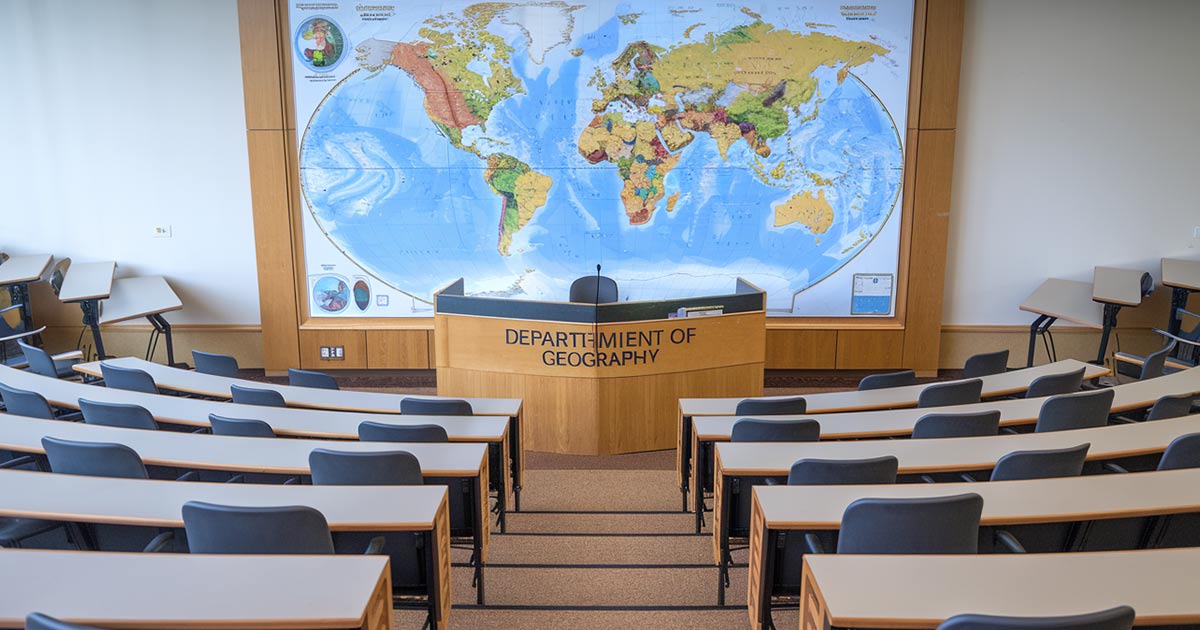
Master of Science (M.Sc) in Geography
By NCTA Team Last Updated: December 04, 2024Overview:
Geography is the study of the Earth’s physical features, climate, and the distribution of living organisms, as well as the relationship between humans and their environment. It examines how natural landscapes, resources, and ecosystems interact with human activities, including settlement, culture, economics, and politics.
Course Description:
Master of Science in Geography is a two-year postgraduate program designed to provide students with an advanced understanding of both physical and human geography. This comprehensive course covers the study of Earth's landscapes, environments, climate patterns, ecosystems, and the ways in which human activities interact with and influence these systems. Students will explore key topics such as geographic information systems (GIS), environmental management, urban planning, climate change, population dynamics, and sustainable development.
Throughout the course, students will gain practical skills in spatial analysis, data collection, and geographic modeling, preparing them to tackle complex geographical challenges. The program combines theoretical knowledge with hands-on experience, allowing students to engage in fieldwork, research projects, and internships that apply geography concepts to real-world issues.
Graduates of this program will be equipped with the expertise needed for careers in various sectors, including urban planning, environmental consultancy, government agencies, research institutions, and international development organizations. The M.Sc. in Geography also provides a strong foundation for students wishing to pursue further academic study or a Ph.D. in Geography or related fields.
Objectives:
The objective of the Master of Science in Geography is to provide students with advanced knowledge and practical skills in physical and human geography, GIS, environmental management, and spatial analysis to address global and local geographical challenges.
Responsibilities of a Geographer:
A geographer studies the Earth's landscapes, environments, and the spatial relationships between people, places, and phenomena. They analyze both physical and human aspects of geography to understand how natural processes and human activities shape the world. Key tasks include:
- Studying landforms, climate, ecosystems, and natural resources, and how they change over time.
- Examining population patterns, urbanization, migration, cultural landscapes, and how humans interact with the environment.
- Using technology to collect, analyze, and interpret spatial data for various applications like urban planning, environmental conservation, and disaster management.
- Conducting fieldwork and using data analysis tools to study geographical patterns and issues such as climate change, resource distribution, and social or economic dynamics.
- Providing insights for sustainable development, resource management, and environmental conservation to address real-world challenges.
Course Curriculum:
The curriculum provides a balanced combination of core geographic principles, specialized topics, practical skills in GIS and remote sensing, and field-based learning, preparing students for diverse career opportunities in both public and private sectors. The final year offers flexibility for students to focus on specific areas of interest through electives and independent research projects. Key subjects including:
Semester I:
- Introduction to Physical Geography
- Human Geography: Concepts and Theories
- Geographical Thought and Research Methods
- Cartography and Geospatial Data
- Fieldwork and Survey Techniques
Semester II:
- Geographic Information Systems (GIS)
- Climatology and Meteorology
- Environmental Geography and Management
- Urban and Regional Planning
Semester III:
- Advanced Physical Geography
- Population and Migration Geography
- Political Geography and Geopolitics
- Remote Sensing in Geography
Semester IV:
- Sustainable Development and Global Environmental Issues
- Advanced Urban and Regional Development
- Geospatial Modeling and Spatial Analysis
- Dissertation
Career Opportunities:
M.Sc. in Geography opens doors to roles in both the public and private sectors, with increasing demand for geospatial professionals worldwide. Key career opportunities include:
- Urban and Regional Planner
- Geographic Information Systems (GIS) Specialist
- Environmental Consultant
- Climatologist or Meteorologist
- Geospatial Data Analyst
- Cartographer
- Environmental Policy Analyst
- Remote Sensing Specialist
- Teacher/ professor
Salary Expectations:
Salaries for graduates with a Master of Science in Geography vary depending on the job role, experience, location, and industry. Generally, salaries range from $45,000 to $120,000 per year. Salary potential increases with experience, advanced skills, and work in specialized sectors or international organizations.
Course Features
| Course Code | UDC-571 |
| Duration | 2 Years |
| Category | Master of Science (M.Sc) in Geography |
| Eligibility | B.Sc in Relevant Stream/ B.Sc - ZBC, PCB, Biological Science |
| Fees | 2×35000= 70000 |
To know more about our this course, feel free to call us at:
+91 9733600770Ready to Enroll in This Course?
Start your learning journey today and unlock your potential!
Apply Now for This CourseCurrent Job Opportunities for This Course
Data Scientist – Machine Learning, NLP & AI
Jero Technologies Mumbai, Delhi / NCR, Bengaluru, Kolkata, Chennai, Hyderabad, Ahmedabad, Pune, RemoteJero Technologies is hiring an experienced Data Scientist with strong expertise in Machine Learning, NLP, and AI to build intelligent algorithms, conversational AI systems, and scalable data-driven solutions.
Read More

